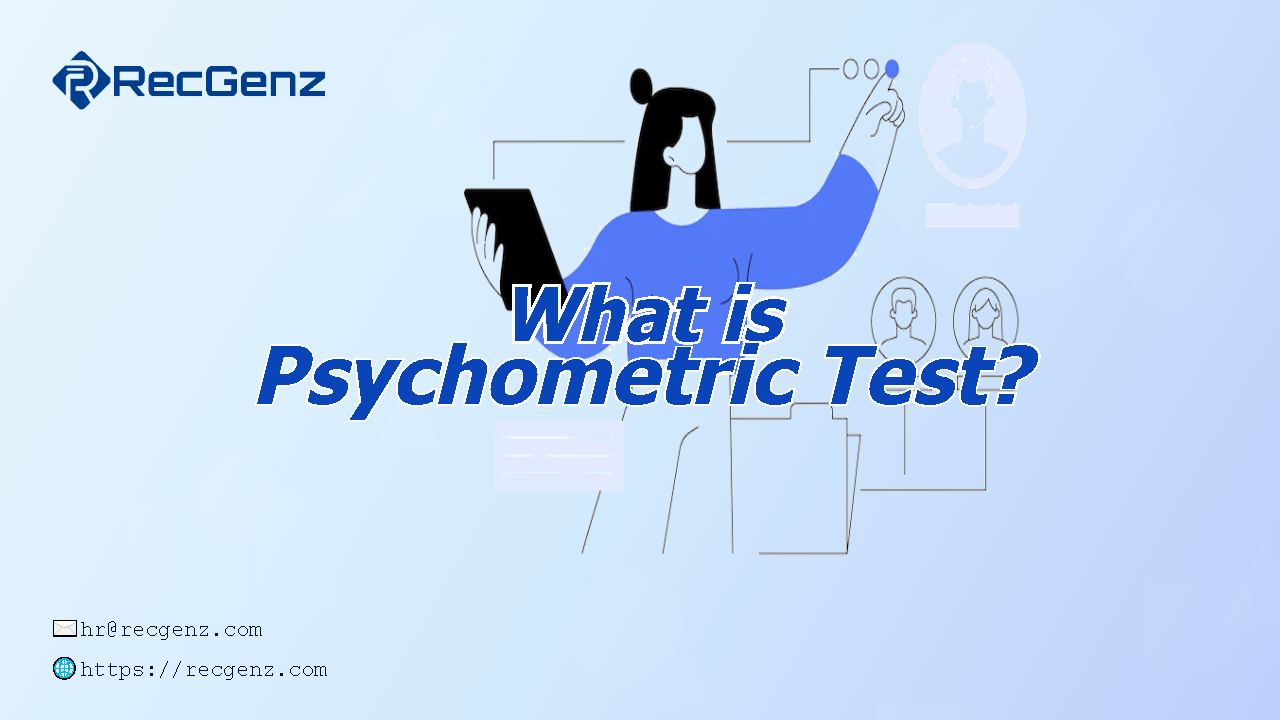What is a Psychometric Test?
How employers use these tests in recruitment to assess candidate suitability.

What is a Psychometric Test?
A psychometric test is a structured assessment tool designed to measure an individual’s mental capabilities, behavioral style, personality traits, and cognitive abilities. Employers widely use these tests during recruitment to gain insights into a candidate’s suitability for specific roles beyond what interviews or résumés reveal.
These tests are scientifically validated, ensuring objective evaluation of qualities such as problem-solving, logical reasoning, emotional intelligence, and workplace behavior. By using psychometric assessments, organizations reduce hiring biases and improve the chances of long-term employee success.
Why Employers Use Psychometric Tests
- Assess cognitive abilities such as numerical, verbal, and logical reasoning.
- Understand personality traits and predict cultural fit within teams.
- Identify leadership potential and decision-making skills.
- Provide an objective measure to support fair recruitment practices.
- Reduce employee turnover by ensuring better role alignment.
Types of Psychometric Tests
1. Aptitude Tests
Measure problem-solving, numerical, verbal, and abstract reasoning abilities, often under timed conditions.
2. Personality Questionnaires
Assess traits such as teamwork, adaptability, motivation, and leadership style to predict workplace behavior.
3. Situational Judgment Tests (SJTs)
Present candidates with realistic workplace scenarios to evaluate decision-making and problem-handling skills.
4. Emotional Intelligence Tests
Evaluate self-awareness, empathy, stress management, and interpersonal communication.
5. Skills-Based Assessments
Focus on role-specific abilities, such as coding tests for IT roles or language proficiency tests for communication-heavy jobs.
Benefits of Psychometric Testing
- Provides objective and standardized insights about candidates.
- Improves quality of hiring decisions and reduces recruitment bias.
- Helps identify hidden strengths and potential of candidates.
- Supports succession planning and leadership development.
- Boosts retention rates by aligning personality and role demands.
Challenges in Psychometric Testing
- High-quality tests can be expensive for organizations.
- Some candidates may attempt to manipulate answers in personality tests.
- Results must be interpreted by trained professionals for accuracy.
- Over-reliance on tests may overlook other important hiring factors.
- Cultural and language differences can affect test performance.
Best Practices for Using Psychometric Tests
- Choose validated, reliable tests that align with job requirements.
- Combine psychometric results with interviews and other selection methods.
- Ensure candidates are informed and prepared for assessments.
- Train recruiters and managers to interpret results correctly.
- Regularly update testing tools to match evolving job demands.
Key Takeaways
- Psychometric tests assess cognitive skills, personality, and workplace behavior.
- They help employers make fair, data-driven recruitment decisions.
- Types include aptitude, personality, emotional intelligence, and situational judgment tests.
- While beneficial, tests should complement—not replace—other hiring methods.
- Best practices include using validated tools, combining multiple assessments, and ensuring ethical usage.




